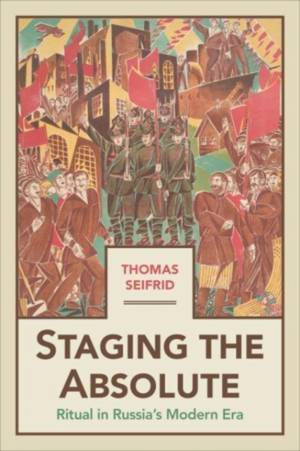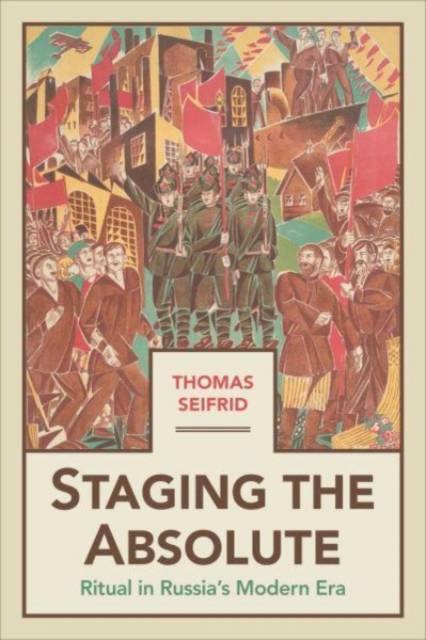
- Afhalen na 1 uur in een winkel met voorraad
- Gratis thuislevering in België vanaf € 30
- Ruim aanbod met 7 miljoen producten
- Afhalen na 1 uur in een winkel met voorraad
- Gratis thuislevering in België vanaf € 30
- Ruim aanbod met 7 miljoen producten
Omschrijving
Staging the Absolute argues that an array of practices and beliefs came together to define an essential aspect of Russian and Soviet culture in the twentieth century: the persistent desire to interrupt - or disrupt - history. Drawing on sources that define the nature of public rituals, the book reveals the pervasive presence of the impulse to impede history in Russia's modern era and the realization of the idea in the form of the Stalinist show trials of the 1930s.
Thomas Seifrid analyses Soviet festivals, public displays of agitational propaganda, and urban planning, together with such modernist precursors as fin-de-siècle and early twentieth-century projects for reviving the theatre, modernist adaptations of puppet theatre, the Faust legend and its vogue in early twentieth-century Russia, and the nineteenth-century panorama. The book reveals that what binds these otherwise disparate phenomena together is a shared impatience with history and a corresponding desire to appropriate urban space. Illuminating the deeper meanings in these revived archaic forms, Staging the Absolute shows how pervasive the interest in disrupting history was in the Russian modern era.
Specificaties
Betrokkenen
- Auteur(s):
- Uitgeverij:
Inhoud
- Aantal bladzijden:
- 264
- Taal:
- Engels
Eigenschappen
- Productcode (EAN):
- 9781487551803
- Verschijningsdatum:
- 11/10/2023
- Uitvoering:
- Hardcover
- Formaat:
- Genaaid
- Afmetingen:
- 157 mm x 234 mm
- Gewicht:
- 498 g

Alleen bij Standaard Boekhandel
Beoordelingen
We publiceren alleen reviews die voldoen aan de voorwaarden voor reviews. Bekijk onze voorwaarden voor reviews.









